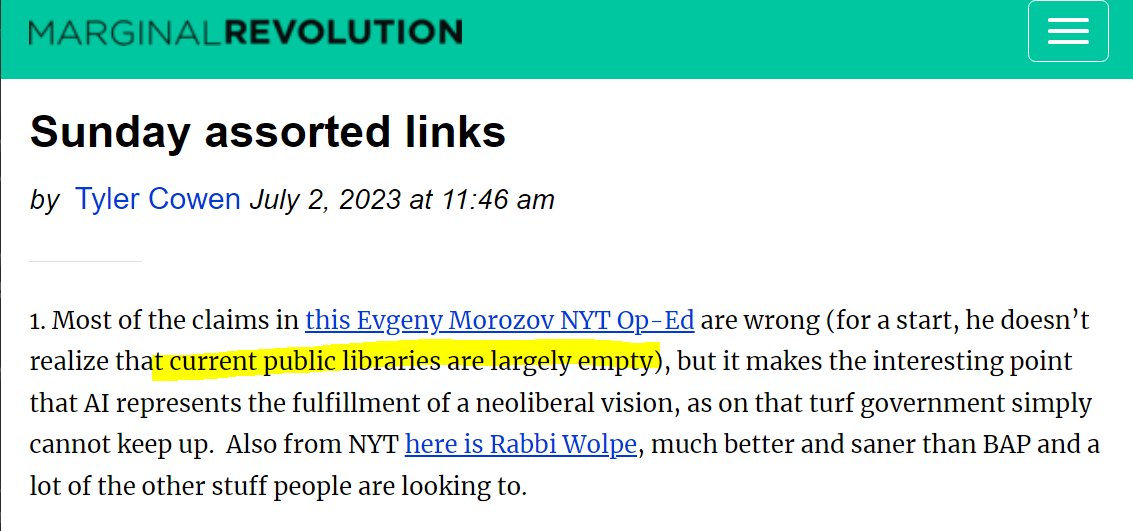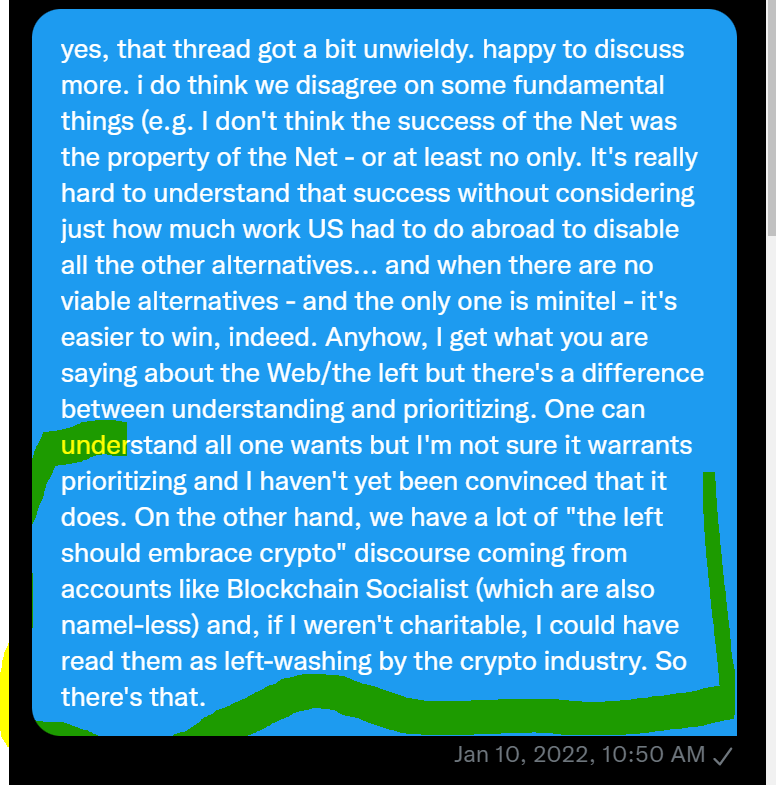
Founder and publisher @syllabus_tweets; author; A SENSE OF REBELLION podcast coming out in June 2024
2 subscribers
How to get URL link on X (Twitter) App






 Hippies wanted a communal, decommodified world, where property rights were loose or abolished. "Open land" was one of the rallying cries of people at the communes. Silicon Valley, in contrast, is dreaming of fully privatized, techno-feudal cities - private property on steroids.
Hippies wanted a communal, decommodified world, where property rights were loose or abolished. "Open land" was one of the rallying cries of people at the communes. Silicon Valley, in contrast, is dreaming of fully privatized, techno-feudal cities - private property on steroids.




 Meet Warren Brodey (b. 1924), the star of A SENSE OF REBELLION. Someone with huge but unknown impact on digital culture (MIT's Negroponte lists him as one of his most important early mentors). Someone who, in his hippie phase, would climb trees - pantless (see end of this clip!)
Meet Warren Brodey (b. 1924), the star of A SENSE OF REBELLION. Someone with huge but unknown impact on digital culture (MIT's Negroponte lists him as one of his most important early mentors). Someone who, in his hippie phase, would climb trees - pantless (see end of this clip!)





 Even on libraries, what a cheap shot! Compare the results of decades of defunding & privatizing public libraries in the US (where one company, Library Systems & Services, runs the country's THIRD largest library system) with Europe's pro-library & pro-public policy... 2/4
Even on libraries, what a cheap shot! Compare the results of decades of defunding & privatizing public libraries in the US (where one company, Library Systems & Services, runs the country's THIRD largest library system) with Europe's pro-library & pro-public policy... 2/4
